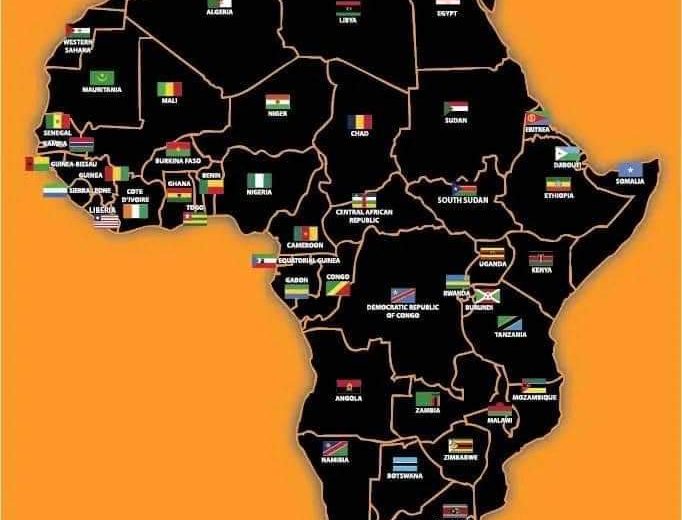Africa’s ascent toward economic advancement is strongly propelled by innovation. Over the last decade, the continent has become one of the world’s fastest-growing regions, courtesy of several African governments’ strategic investments in innovative policies. This article spotlights twenty pioneering policies steering economic growth across African societies.
1. Agricultural Transformation: Rwanda’s Strategic Plan for Agricultural Transformation (PSTA) has ignited a modernization wave in agriculture. Crop specialisation programmes and initiatives like Girinka bolstered output, fostering economic growth.
2. Public-Private Partnerships (PPPs): Infrastructural ventures like Kenya’s Lamu Port-South Sudan-Ethiopia Transport Corridor (LAPSSET) and South Africa’s Renewable Energy Independent Power Producer Procurement (REIPPP) Programme highlight the transformative role of PPPs in economic progress.
3. Infrastructure Development: Kenya’s Public-Private Partnership Act catalyses significant infrastructural growth. Rwanda’s efficient energy sector regulations have attracted substantial investments, driving economic development.
4. Digitalization Initiatives: Ghana’s National Information Technology Agency and South Africa’s Africa Teen Geeks showcase the importance of digitalization in propelling technology-driven economic growth.
5. Foreign Direct Investment (FDI) Frameworks: Rwanda’s Integrated Electronic Case Management System expedited business registration, enhancing investor confidence. Mauritius maintains an advantageous position in the Ease of Doing Business ranking due to its efficient property registration system.
6. Entrepreneurship Support Programmes: Ghana’s National Entrepreneurship and Innovation Programme (NEIP) and similar initiatives acknowledge entrepreneurship’s role in sustainable economic growth by offering comprehensive support to small businesses.
7. Education Reforms: African countries focusing on STEM education and skill development are reshaping their workforce. Botswana’s comprehensive STEM curriculum and Rwanda’s investment in scientific and technological infrastructure are prime examples.
8. Trade Facilitation Policies: The AfCFTA’s trade policies aim to transform intra-African trade by reducing tariffs and focusing on service trade liberalisation, enhancing economic cooperation within the continent.
9. Financial Inclusion Strategies: Investment in Fintech and innovative financial models like Kenya’s M-Pesa uplift communities by promoting access to banking and financial services, thus reducing poverty rates.
10. Energy Sector Reforms: South Africa and Nigeria’s initiatives in sustainable energy sources and rural electrification programmes demonstrate strides in the energy industry, attracting investments and improving access to electricity.
11. Investment in Healthcare: Mobile health solutions have emerged to improve healthcare access in remote areas, contributing to a healthier and more productive workforce.
12. Corruption Control Measures: Nations like Botswana are employing anti-corruption policies, strengthening institutions, and increasing fiscal transparency to curb corruption.
13. Special Economic Zones (SEZs): Policies promoting SEZs are essential for economic diversification and job creation, as exemplified by initiatives in Mauritius, Ethiopia, Rwanda, and Nigeria.
14. Tourism Promotion: Investments in infrastructure development and marketing campaigns like Rwanda’s Visit Rwanda campaign promote tourism, contributing to economic growth.
15. Climate Change Mitigation Policies: South Africa’s efforts to mitigate climate change by implementing a carbon tax demonstrate commitment towards environmental sustainability.
16. Social Welfare Programmes: South Africa’s Social Grants System and Rwanda’s One-Cow Per Poor Family initiative aim to reduce poverty by providing financial support to vulnerable groups.
17. Inclusive Governance Practices: Rwanda’s gender-inclusive policies promoting equal participation of women in politics highlight strides in inclusive governance practices.
18. Smart Cities Initiatives: African cities are adopting smart technology to improve urban services, as exemplified by initiatives in Cape Town, South Africa, and Kigali, Rwanda.
19. Regional Integration Policies: The East African Community’s measures promoting economic integration, like the Common Market Protocol, strengthen economic cooperation within the region.
20. Innovative Tax Policies: Rwanda’s digital tax stamps on tobacco and alcohol and Ghana’s System for Tax Identification Numbers (TINs) demonstrate innovative revenue collection strategies.
African nations’ economic progress, fuelled by pioneering policies across various industries, not only contributes to the continent’s growth but also makes a substantial global impact on sustainable development.


